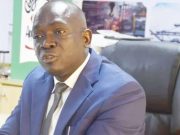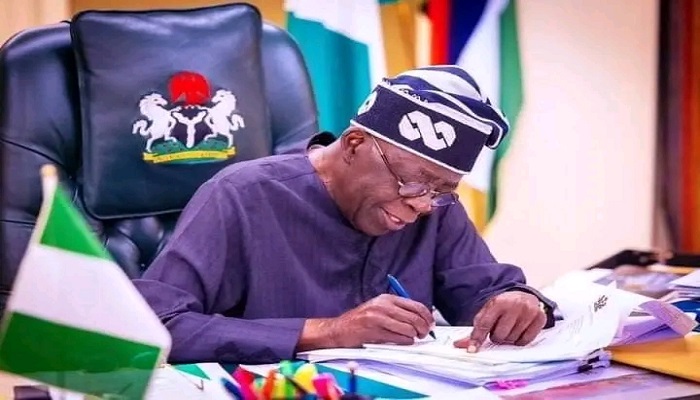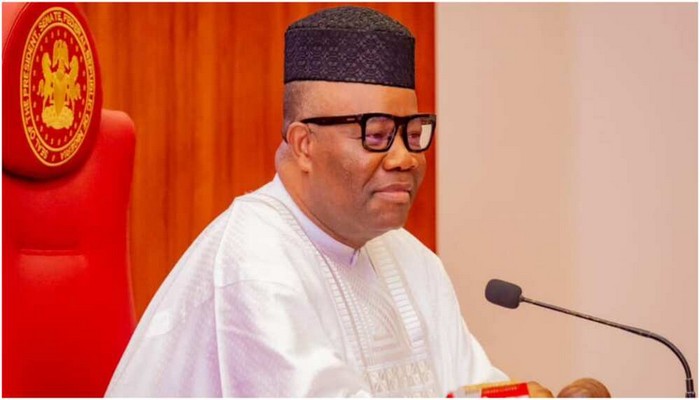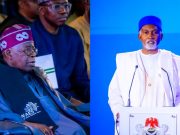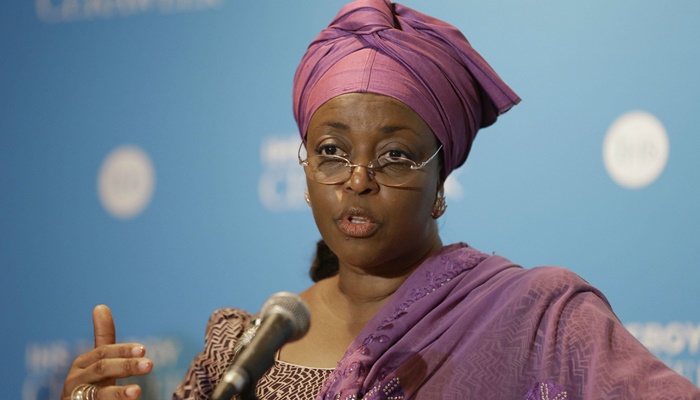The 2015 audit report of the Federation Account has uncovered how the embattled former Minister of Petroleum Resources, Diezani Alison-Madueke, usurped National Assembly powers to draw billions in cash from the joint venture cash calls account without appropriation.
The report published last month by the Office of the Accountant General of the Federation, AuGF, showed how Mrs. Alison-Madueke unilaterally approved the withdrawal of about N59.44 billion from the two accounts belonging to the Nigerian National Petroleum Corporation, NNPC.
About $292.09 million was withdrawn from the NNPC JVCC JP Morgan Chase Account in London, while another N2.47 billion was from the NNPC JVCC CBN (Central Bank of Nigeria) naira account, for purposes outside the objectives the funds were provided for by the government.
Apart from the abuse of due process in getting approval for the release of the funds, the report said the release of $289.2 million (about N56.97 billion at 2015 year end rate of N197 to $1) to the now suspended Director-General of the National Intelligence Agency, NIA, Ayodele Oke, was in “cash”.
An additional $2.89 million was charged by the CBN as commission on the transaction, bringing the total amount disbursed to $292.09 million.
The report said Mr. Oke had sought President Goodluck Jonathan’s approval for the release of the funds “for the procurement of 13 items of expenditure to enable NIA to respond to the nation’s mounting diverse and complex security challenges.”
However, the audit team said it found no evidence President Jonathan granted the NIA DG’s request, other than a minute on the memo to former Minister of Petroleum Resources, Diezani Alison-Madueke, seeking the release of the funds from the NNPC Security votes.
It was not clear who sent the minute to the minister, or which authority the NNPC/NAPIMS relied on to disburse the funds, the report stated.
Apart from not disbursing the funds into an identified NIA official account, the report said NNPC/NAPIMs “mandated the CBN to make the payment in cash to the NIA DG,” an arrangement the report noted was ‘in violation of the existing government policy on e-payment for huge sums.”
Describing the transaction as “highly irregular”, the report observed that the “payment was neither budgeted for nor appropriated by the National Assembly.”
Another N2.474 billion disbursed to the Chief of Naval Staff Operations’ Main Account, the report said, was said to be for “payment of rent of 13 houseboats deployed under Joint Task Force Operation “Pulo Shield” in the Niger Delta.”
But, the report noted that “no list of these houseboats’ owners, the boats and the respective amounts due to each totalling the N2,474,295,000.00 disbursed was attached, or presented for audit verification.”
“All these payments were directed to be disbursed from the NNPC Security Votes. No detailed budget of the Joint Venture Operations was presented for audit verification, to confirm the provision of such huge amount as security votes, and whether these payments were included in such provisions,” the report added.
The NNPC GMD, along with the Managing Director of the investments management arm, the National Petroleum Investments Management Services, NAPIMS, were expected to explain who approved the suspicious transactions and transfers without appropriation in the 2015 Budget by the National Assembly.
Both are expected to also justify why the CBN made the transfers as well as evidence of interest payments on the account.
Besides, details from the final report, which has since been presented to the National Assembly, also revealed the irregular transfer of over $2.06 billion by the NNPC between the JVCC JP Morgan Chase Account and the Bank of International Settlement, BIS without proper authorisation and documentation.
Between August 20 and October 22, 2015, the report said, the audit team observed “suspicious inflows of about $950 million and outflows of about $1.1 1billion from the BIS account.”
“The purpose and authority for which these funds were transferred to and out of this account to the BIS Account could not be ascertained, as relevant information, in form of Mandates and other necessary approval memos were not made available,” the report noted.
Following an audit scrutiny, the report said it was found that the bank statement of the controversial account did not even bear any customer number.
Also, there were no records of any interest received and paid into the Federation Account from the account, despite its positive balance of about $1.077 billion (about N212.18 billion) as at December 31, 2015.
Equally, the NNPC top management has questions to answer over a dollar-denominated account considered illegal and unknown to the federal government but kept by the corporation for the collection of revenues from gas sales.
About $100.64 million (about N19.8 billion) in the account titled, “Nigeria Gas Limited, NGL, Funding Account,” was said to be from gas sales as feedstocks to the Nigeria Liquefied Natural Gas, NLNG. The amount was due to the Federation Account but was not paid in full.
Rather than the Federation Account, the report observed, part of the money was transferred to dedicated escrow accounts belonging to the Maritime and Coastguard Agency, MCA and Niger Delta Petroleum Resources Limited, NDPR.
NDPR is a subsidiary of the Niger Delta Exploration & Product, NDEP, Nigeria’s first integrated oil and gas company.
“The purpose of this account was not made known to audit, likewise, the benefit of the operation of the account to the Federation,” the report noted.
Between January and December 2015, the report said, auditors found that about $94.07 million was transferred to the MCA Escrow Account, against $6.567 million into the NDPR’s Account.
However, the report noted that relevant documents relating to the operation of these accounts, namely cash books, bank statements, mandates, and payment voucher details, were not made available by NNPC for audit examination.
The AuGF said details on the utilisation of about $30.96 million (about N6.099 billion) realised from gas sales paid through the account could neither be ascertained nor confirmed in the Federation Account.
Also in this case, despite several requests, the report said the NNPC management failed to present for audit examination all the relevant documents, including cash book, bank statements and mandates.
About seven firms identified as customers were found to have made various payments into the account.
They include Century Energy Serv. Limited, United Refining Kachmann, Union Petroleum Services, Ocean Bed Trading Limited, Ice Energy & Petroleum, Mangrove Petroleum Supplies & Logistic and Unicorp Trading Limited.
The Group Managing Director of NNPC was asked to explain the purpose of the escrow accounts and the benefits to the three tiers of governments, as its operation remained suspicious.
When contacted via telephone last Tuesday, the NNPC Spokesperson, Ndu Ughamadu, said he was out of office and asked for time to cross check the details of the allegations before a formal reaction.
His response was still being awaited at the time of going to the press.
But, the Director, Consolidated Accounts Department, CAD, in the office of the Accountant General of the Federation, OAGF, Samson Arowojolu, said responses to audit queries are only allowed to be channeled to the Public Accounts Committee, PAC, once the final report had been submitted to the National Assembly by the Auditor General.
The 656-page audit report also recently revealed how cumulative unremitted revenue from domestic crude oil sales by the NNPC, stood at about N3.878 trillion as at December 31, 2015.
The report, which formed part of the submissions in the 2015 Annual Audit Report of the Federal Government Account by the Auditor General said the state–owned oil company withheld about N644.377 billion in 2015 alone.
The report, amongst many other stunning revelations, also said that at least 44 assorted arms belonging to the Nigerian police could not be accounted for between 2013 and 2015, raising fears the weapons could have ended up in the wrong hands.
Credit: Premium Times




